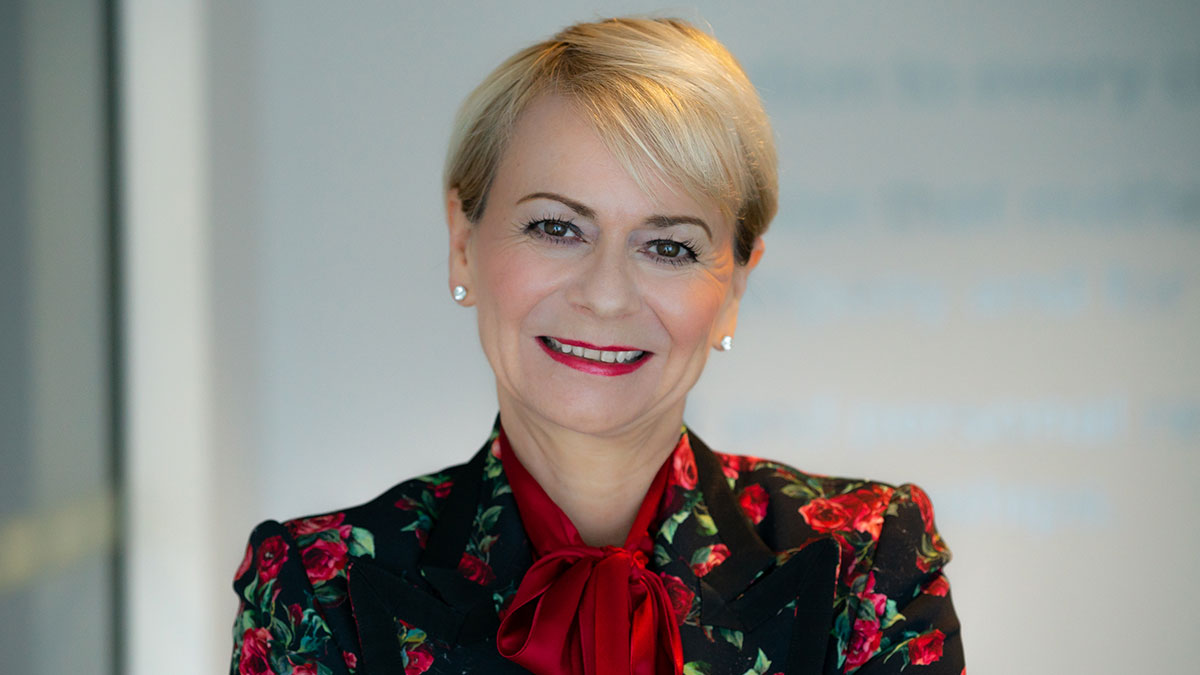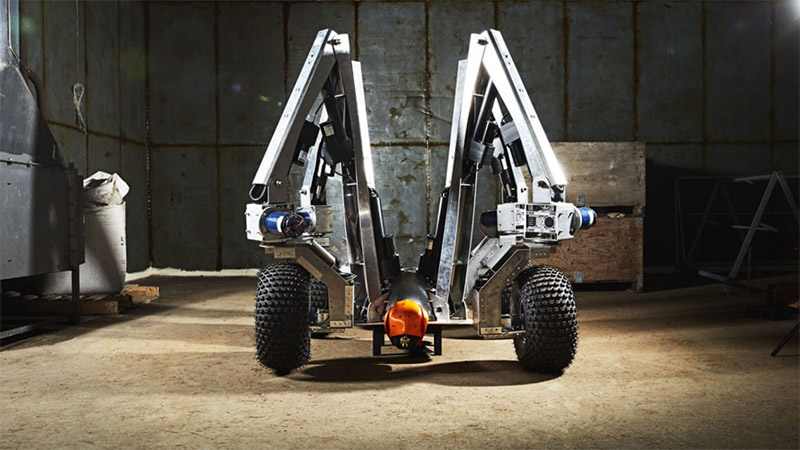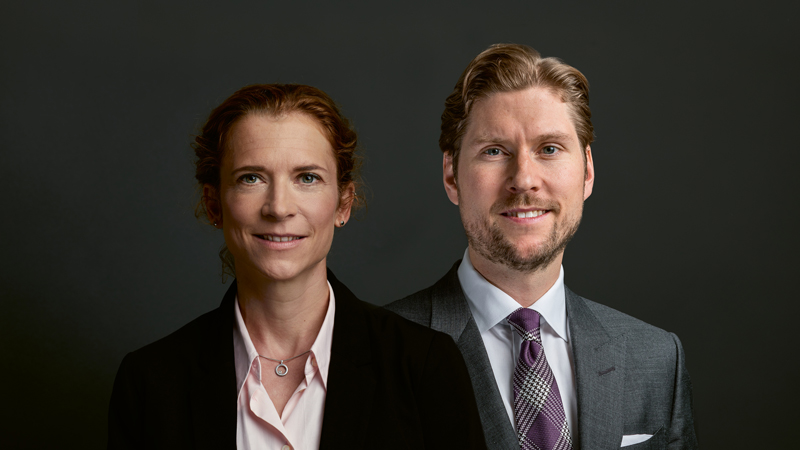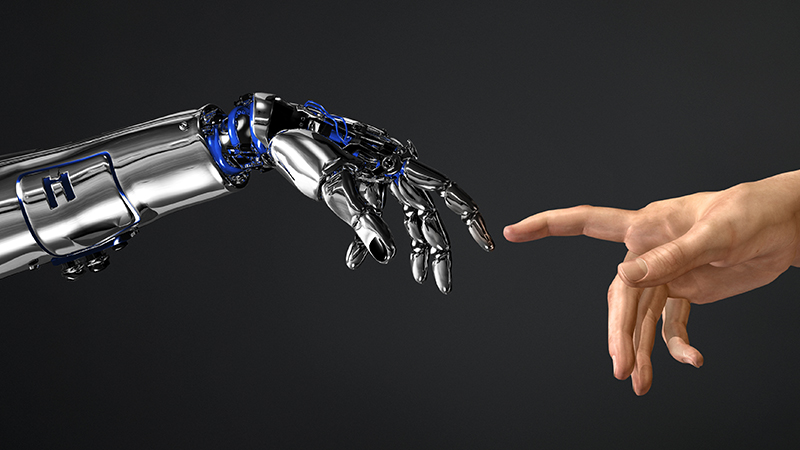A "think tank" in the cloud
An interview with Harriet Green, CEO of IBM Asia Pacific, on "Watson", the company's intelligent data platform
Watson is an IBM system based on Artificial Intelligence (AI). It helps companies and people cope better with daily tasks and is designed to understand, draw conclusions and learn. Watson plays an important role in the Internet of Things (IoT) – technologies that enable physical and virtual objects to be networked and to cooperate via information and communication technologies. This is how life functions when everyday objects are networked and assisted by Big Data.

Harriet Green, CEO IBM Asia Pacific © Photo: IBM
Ms. Green, when most people think of your supercomputer Watson, they probably recall how handily it won the American TV game show "Jeopardy". Where do you stand today with Watson?
Watson is not a supercomputer. It's no omniscient "super brain", as it was often dubbed after its appearance on Jeopardy. Instead, it's a modular cloud platform that's equipped with a variety of services, all based on Artificial Intelligence (AI). For example, it comes into play when a company in the auto industry wants to use image recognition to automatically spot production errors or critical defects affecting the quality of their car assembly process, or they want to optimize energy consumption in their production. By working through various interfaces, companies, organizations and individual users can access the relevant services from the cloud and integrate them into their own systems in order to solve individual tasks and problems – all without a great deal of effort. These services include voice, image or text analyses or conversation aids.
"As in the previous industrial revolutions, tasks that are boring, repetitive and sometimes even dangerous are being automated by machines"
How does that work exactly?
The diverse services are based on algorithms that are cognitive, that is to say, they are "capable of learning" in the broadest sense, and that are individually trained in the context of their specific assignment to be able to carry out their specific tasks. To return to the example I mentioned earlier: With Watson, IBM has developed an early warning system for quality defects. Incipient quality problems in production can be spotted faster and more reliably than was previously possible with traditional statistical methods. The system is very sensitive, reacting to even the smallest changes in individual values and raising the alarm. This way, problems can be resolved even before they have led to any negative effects.
"Even thinking systems like Watson aren't able to simply find a new task to perform on their own"
Can you give us another example of how Watson is being applied?
Watson can process massive amounts of data, understand relationships, learn from them and draw conclusions. Watson will play a big role in the Internet of Things (IoT), in other words in the way everyday life is being networked: when billions of devices start generating floods of data, we will need systems like Watson so people can come to terms with it all. Another example is the predictive maintenance at Kone, a manufacturer of elevators and escalators. Kone uses the IBM Watson IoT platform to monitor over a million elevators, escalators, revolving and automatic doors all around the world. The built-in sensors on these products provide data that Watson permanently collects and analyzes, helping detect technical problems at an early stage. Kone can thus react in real time and, if necessary, initiate appropriate measures, eventually also via the cloud.
How else is Watson being used?
Examples range from a car that speaks to its driver in natural language, to a washing machine that optimizes its energy consumption depending on the size of the load. In just two years, experts say, forty percent of digital transformation initiatives will involve AI. By 2021, seventy-five percent of commercial enterprise applications will use AI, and over ninety percent of consumers will turn to AI-powered customer support agents, so-called chatbots. With the help of AI, IoT devices can provide even deeper insight into processes for every conceivable application, and this will increase their efficiency.
You have said that a brontobyte of data will be generated over the next ten years. What is a "brontobyte"?
Currently, the Internet produces one exabyte of data every day – that's the equivalent of the content of 250 million DVDs. A brontobyte is a trillion exabytes, an almost unimaginably large quantity. Think of the number of all the grains of sand on earth, then multipliy that by a billion. To handle such massive amounts of data, we need systems like Watson that are able to learn not only from structured data, such as the data found in a spreadsheet, but also from unstructured data: images, videos, sounds, and sensor-generated data of all kinds.
"When billions of devices are generating floods of data, we will need systems like Watson so people can come to terms with it all"
Artificial Intelligence is suddenly everywhere: How is Watson different from the thinking algorithms that Google, Amazon or Apple build into their devices?
The biggest difference is Watson's maturity. We train Watson for very specific tasks within the business. Our focus is on providing professional support for experts and on case-specific tasks. In addition, we decided years ago to offer Watson services in the cloud. Being cloud-based means that although the AI services are located in the cloud, the customer's data remain behind the firewall of the respective company and thus safe from access by third parties. Another key difference is Watsons' ability to process natural language – not just in English, but also in German, French, Spanish or Japanese. The system doesn't simply recognize keywords, but is able to grasp the sense of the query through contextual analysis.
What do you want to achieve with Watson?
We believe that the age of thinking, intelligent systems is just beginning. I'm constantly besieged by corporate bosses and managers who tell me, "We have all this data. What can we do with of it?" Here, we can offer flexible help. And we will never run out of work!
"Watson is able to learn not only from structured data, but also from unstructured images, videos or sounds"
Do you see any danger that in the future we will be relying too much on automated systems?
No, because these machines are not meant to take away the need for us to think, or to replace us. These systems are there to support our decisions, which extends our human capabilities. As in the previous industrial revolutions, tasks that are boring, repetitive and sometimes even dangerous are being automated by machines. There's no doubt that occupations will continue to change, but people will still make the final decision. What's more, even thinking systems like Watson aren't able to simply go out and find a new task to perform on their own. They have to be redirected by human beings. So the idea that AI systems will eventually take over the world is really just the stuff of science fiction movies.
About Harriet Green
Harriet Green, led travel group Thomas Cook Group before heading up "Watson Internet of Things" at IBM in 2015. Today she is CEO of IBM Asia Pacific.
Who are we? How do we live today? And how will digitization change our lives? How the future will unfold is preoccupying society more than ever, with engineers, doctors, politicians – each one of us, in fact – seeking answers. This interview with Harriet Green is one of many contributions that shed light on the theme "Digitized Society" from a new, inspiring perspective. We are publishing them here as part of our series "Impact".
Our great sense of curiosity at Vontobel means we are attentively following scientific research in many key areas. This helps us recognize new investment opportunities early on. That's why our thematic portfolios and thematic investments also reflect megatrends such as digitization, as we consider companies that are making valuable contributions to solving global challenges.
I am interested in Vontobel thematic investments
I am interested in Vontobel funds








